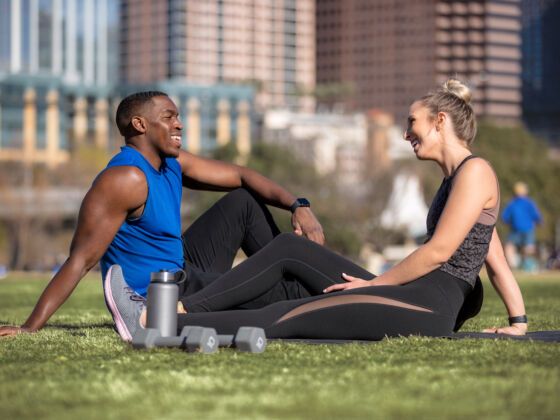It’s a well-known stereotype here in Washington, DC, that when you meet someone, the first question they’re likely to ask you is, “So what do you do?” It’s occasionally substituted by its more blunt “Who do you work for?” Since this is a town that’s extremely career oriented, and since so much of its population is transient, most of the small talk and chitchat is cut straight out of the conversation, and you’re basically going straight to, “So how can I use you? How can we use each other? Do I need to kiss your ass?”


It has probably always been sour grapes for me because I’m one of the least important people in this town, but I always found it exasperating and tacky. First off, I’m of no use to you, and second, do we have to be useful to each other? Can’t we just enjoy our drinks and talk about how our town is way less like House of Cards and much more like Veep?
This is in comparison to my hometown of Cincinnati, where the stereotypical question was, “So where did you go to school?” No one ever meant, “Where did you go to college?” They meant, “Where did you go to high school?” This inevitably descended into a list of “Oh, do you know so-and-so?” It was not a particularly pleasant conversation starter, but polite conversation in Cincinnati contained no mention of business or politics, and thus relied on Cincinnati sports and the weather. The weather has recently become more political, and Cincinnati sports is just a generally emasculating thing to talk about, so we were stuck with, “Hey, do you know that guy?”
Deborah Fallows over at The Atlantic recently did an informal poll as to what people say after “hello,” dependent on their specific hometowns and neighborhoods. She came up with some interesting results.
One of the most popular responses was, “Where do you live?” As a 20-something guy, I don’t think I’d ever ask that. It sounds a bit creepy and stalkerish to me. Maybe I’d go more along the lines of, “Whereabouts are you living?” See, all I did was add in a bunch of totally unnecessary syllables, but it adds an aura of vagueness that suggests I’m not asking for your address and building code.
But of course responses changed from town to town. Many less cosmopolitan towns like Louisville, St. Louis, and New Orleans also asked, “Where did you go to high school?” While more rural areas even asked, “Where do you go to church?” This would be ludicrous in a big city like DC, or even a medium-sized one like Cincinnati, solely on the basis of the religious diversity.
Probably the most fraught question to ask is, “Where are you from?” It seems innocuous enough, but the intent behind the question often has a racial tone to it: “Where are you from?”
“Austin.”
“No, but like, where are you from originally.”
“Austin.”
“Like, you know what I mean…where’s your family from?”
“Austin.”
I’ve even had this work the other way: I asked a man who was Pacific Islander by descent where he was from, meaning what part of the States — as he clearly had an American accent — but he said, “Well, my family’s from Fiji.”
The best question Fallows got in regards to race- or ethnicity-based questions was, “Who’s your mama?” which, in New Orleans, is simply asking who your people are. If I were asked that, I’d answer, “Uh… you… are?” and would promptly die of embarrassment.
While abroad, it’s harder to get a gauge on what the go-to conversation starter is among the local population, because so often with me it’s, “Oh, you’re American! I went to New York once!” and then we’re off down that road.
If I’m being completely honest with myself, the question I tend to jump to first is, “So how do you know [the host or some other mutual acquaintance]?” Which is basically a slightly different iteration of the Cincinnatian “Where’d you go to school?” I so despise.
At its core, the question we’re asking after we say “hello!” is the method we’re choosing to connect with the person we’re speaking to. We can choose to try to align ourselves with them in terms of our identities, we can try to find a common ground in mutual friends, we can try to relate based off neighborhoods we’ve been to, or we can try and relate on the basis of mutual experiences. I guess, if we’re shallow dickheads living on Capitol Hill, we can try to figure out how we can use them for professional gain as well.
It’s an important question though. One of the commenters on Fallows’ article suggested asking the question, “What’s your story?” I think this is probably the best followup I’ve ever heard. People like talking about themselves, and you’ve given them an opportunity to talk about themselves, listing whatever they decide is important — it may be their school, it may be their ethnicity, it may be their hometown — what’s important is you’re leaving it up to them. And after they’ve told their story, you can pick whatever element you want to connect with. It’s also not alienating them by immediately putting the conversation on your own terms instead of theirs. So that’s what I’ll be going with from now on.
I’m curious, though, especially for people from places outside the United States: What do you say after you say hello?